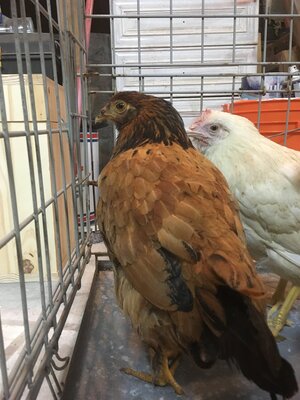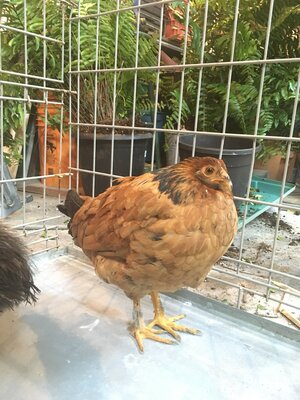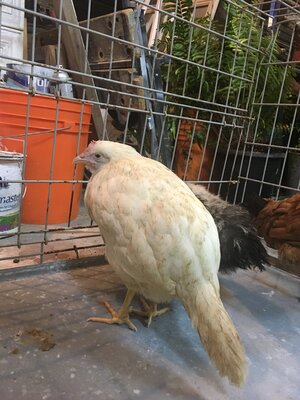DuckNewbies1
In the Brooder
- Jun 19, 2020
- 26
- 24
- 23
So we got three new chickens today. When we went to see the options of chickens, we found there to be around 60-70 chickens in one small shed. We felt so awful for them that we bought three to try and give them a better life. Once we were driving away we noticed the white one was sneezing a lot, sounded a bit raspy, and was often stretching her neck out/shaking her head. No visible discharge anywhere, and seems to be eating alright for the short time we've had her.
After some preliminary research we think it could be gapeworm, and we think one other chicken is looking a little green around the edges... What would you recommend? Should we look into de-worming? What would that process be like? We're already quarantining the three new ones away from our regular flock. We just don't want them to die on us when we're trying to help them.
Any advice would be appreciated!
After some preliminary research we think it could be gapeworm, and we think one other chicken is looking a little green around the edges... What would you recommend? Should we look into de-worming? What would that process be like? We're already quarantining the three new ones away from our regular flock. We just don't want them to die on us when we're trying to help them.
Any advice would be appreciated!







